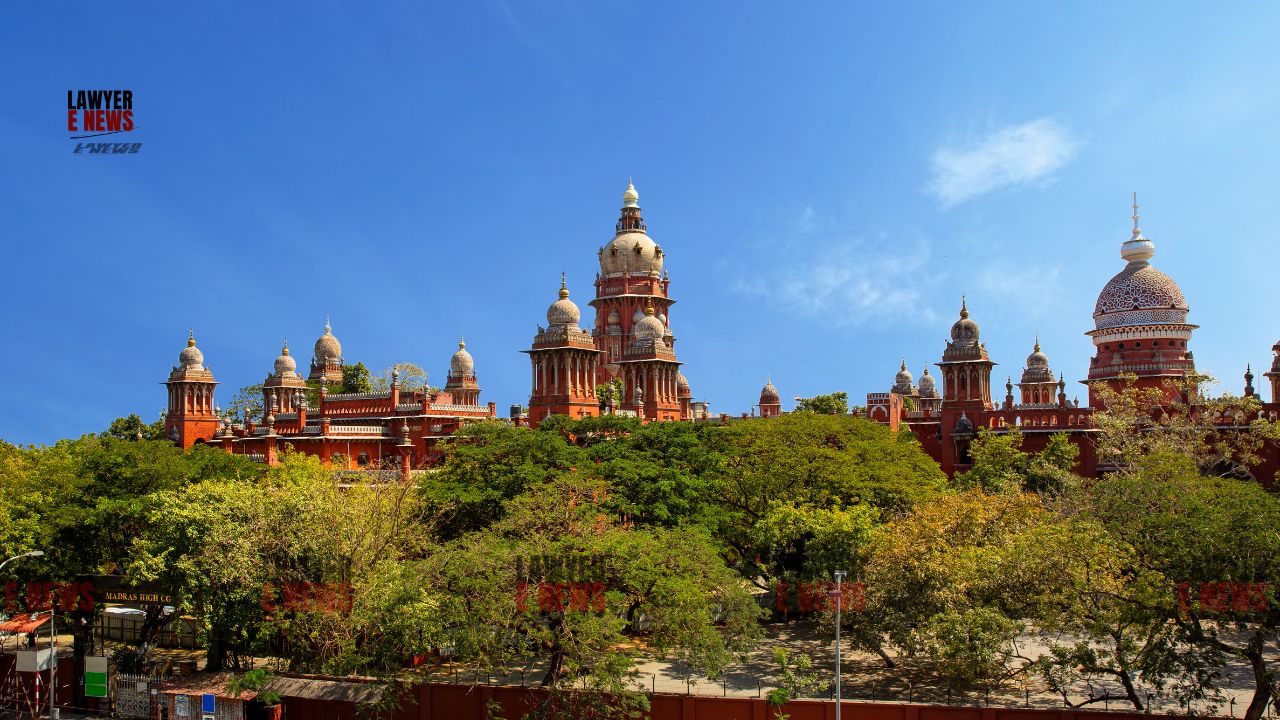-
by sayum
14 February 2026 2:22 PM



Enhanced compensation granted for pain, suffering, medical expenses, and dependency claims in appeals against the Motor Accident Claims Tribunal’s award.
In a significant judgment, the Madras High Court has increased the compensation for victims of a motor accident that occurred during a pilgrimage walk in 2019. The court, presided by Justice N. Anand Venkatesh, reviewed the awards given by the Motor Accident Claims Tribunal (MACT), Principal District Judge, Perambalur, and granted enhanced compensation for pain, suffering, medical expenses, and dependency claims, emphasizing the need for “just and proper” compensation.
The accident took place on March 10, 2019, when a group of pedestrians was walking towards Samayapuram temple. At around 5:45 a.m., a Hyundai i20 car, driven rashly and negligently, collided with the devotees, resulting in three fatalities and several grievous injuries. The victims were taken to the Government Hospital in Perambalur. The MACT found the driver of the offending vehicle at fault and awarded compensation under various heads to the claimants. Dissatisfied with the quantum of compensation, the claimants filed appeals.
The court acknowledged the medical evidence presented by the claimants, which detailed the injuries and treatment undergone. The enhanced compensation considered the medical expenses incurred and the need for prolonged treatment. For instance, the compensation for medical expenses in the case of C.M.A.No.209 of 2023 was increased from Rs. 21,926 to Rs. 22,019 to reflect the actual costs incurred.
Justice Venkatesh underscored the necessity of adequately compensating for pain and suffering, acknowledging the trauma experienced by the victims. The compensation for pain and suffering was recalculated in several cases. For instance, in C.M.A.No.863 of 2023, the compensation under this head was increased from Rs. 10,000 to Rs. 25,000.
The judgment reiterated the principles of awarding compensation in motor accident cases. The court emphasized that the compensation should reflect the actual damages and losses suffered by the victims. The legal representatives of the deceased were also considered for compensation, even if they were not entirely dependent on the deceased.
The court cited the Supreme Court’s ruling in National Insurance Company Limited v. Birender and Ors., highlighting that major earning legal representatives are entitled to claim compensation as it forms part of the deceased’s estate.
Justice Venkatesh stated, “The Tribunal has a duty to make an award, determine the amount of compensation which is just and proper and specify the person or persons to whom such compensation would be paid.” He further added, “There is no legal presumption that just because the dependents are major and living elsewhere, they can never be dependent on the income of the deceased.”
The Madras High Court’s decision to enhance the compensation for the victims of the 2019 pilgrimage walk accident sends a strong message about the judiciary’s commitment to ensuring fair and just compensation in motor accident cases. By meticulously recalculating and increasing the awards, the court has reinforced the importance of thorough and equitable consideration of all factors affecting the victims. This judgment is expected to set a precedent for future cases, emphasizing the need for comprehensive and fair compensation assessments.
Date of Decision: 01.07.2024
